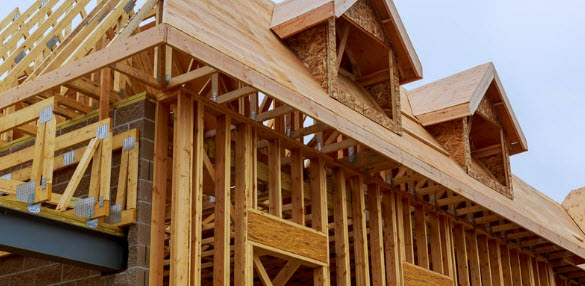Considering a home refinance is a complex decision that requires careful thought. Refinancing your mortgage has the potential to offer significant benefits, but it also carries inherent risks. Determining whether it’s the right move for you involves evaluating several critical factors: your financial goals, the specific terms of your current loan, and your long-term plans for your home. This comprehensive guide will delve into the intricate details of what refinancing entails, the potential advantages it offers, and the potential pitfalls that require careful consideration.
What is Home Refinancing?
Home refinancing involves replacing your existing mortgage with a new one—ideally with better terms. It could mean lowering your interest rate, changing the loan duration, or switching from an adjustable-rate to a fixed-rate mortgage. Refinancing can help you reduce monthly payments, build equity faster, or consolidate debt.
Benefits of Refinancing Your Home
Lower Interest Rates
Interest rates fluctuate, and if rates have dropped since you took out your mortgage, refinancing can save you thousands of dollars over the life of the loan.
Lower Monthly Payments
Refinancing to a longer-term loan can spread out payments, reducing the amount you owe each month.
Access Home Equity
A cash-out refinance lets you borrow against the equity in your home, providing funds for significant expenses such as home improvements or debt consolidation.
Switch Loan Types
If you have an adjustable-rate mortgage (ARM), refinancing to a fixed-rate mortgage offers long-term stability by locking in a consistent interest rate.
Shorten Loan Term
Refinancing can help you pay off your loan faster by moving to a shorter-term mortgage, such as from 30 years to 15 years.
Drawbacks of Refinancing
Closing Costs
Just like when you originally took out your mortgage, refinancing comes with closing costs, which typically range from 2% to 5% of the loan amount.
Longer Loan Term
Extending the loan period could mean paying more interest over the lifetime of the mortgage, even with lower monthly payments.
Equity Risks
With a cash-out refinance, you’re reducing the equity in your home. If property values decline, you could end up owing more than your home is worth.
Is Now a Good Time to Refinance?
Timing is critical when considering a refinance. You’ll want to weigh factors like:
- Current Interest Rates: Are rates lower now compared to when you originally got your mortgage? Even a small rate drop can make refinancing worthwhile.
- Your Credit Score: A higher credit score qualifies you for better refinancing rates. If your score has improved since your original mortgage, now might be the time to act.
- Home Value: Has your home’s value appreciated? A higher value might allow for a better refinancing offer or larger cash-out options.
Pros and Cons of Refinancing
Pros | Cons |
Lower interest rates | High closing costs |
Reduced monthly payments | Extending loan duration |
Access to home equity (cash-out) | Risk of reduced equity |
Switch to fixed-rate mortgage | Possible negative equity if market declines |
Opportunity to pay off mortgage faster | Longer loan = higher overall interest costs |
Navigate your home refinance with confidence using HomeLoanAdvisor’s Home Wealth Blueprint. Get real-time property data insights and personalized mortgage recommendations for your financial journey.
Frequently Asked Questions
- When is refinancing worth it?
Refinancing is worth it if you can secure a significantly lower interest rate, reduce monthly payments, or change the loan terms to suit your financial situation. - What are the risks of refinancing?
Risks include high closing costs, reducing home equity, or extending your loan term, which can lead to paying more in interest over time. - How long does the refinancing process take?
Typically, refinancing can take between 30 to 45 days from start to finish, depending on the lender and your personal circumstances. - Can I refinance with bad credit?
Yes, but it may be difficult to get a favorable interest rate. Some lenders specialize in refinancing for those with lower credit scores. - What happens to my existing mortgage when I refinance?
Your new mortgage will pay off your old one, essentially replacing the old debt with new terms and conditions. - Is it possible to refinance multiple times?
Yes, you can refinance as many times as it makes sense financially. However, be cautious of accumulating too many closing costs. - How much equity do I need for a cash-out refinance?
Most lenders require at least 20% equity in your home to qualify for a cash-out refinance. - Can I refinance if I plan to move soon?
If you plan to move in the next couple of years, refinancing might not be beneficial, as the savings may not outweigh the closing costs. - What are no-closing-cost refinances?
In a no-closing-cost refinance, the lender covers the upfront fees, but you’ll pay a higher interest rate over the life of the loan. - Are refinancing rates negotiable?
Yes, refinancing rates can be negotiable, and it’s always worth shopping around to find the best deal.
Conclusion
Refinancing can be an excellent financial strategy to reduce costs or access equity, but it’s not for everyone. Before making the decision, assess your financial goals, your loan’s terms, and how long you plan to stay in the home. Weigh the pros and cons carefully, get your Free Home Wealth Blueprint and consult with multiple lenders to ensure you get the best deal possible.



